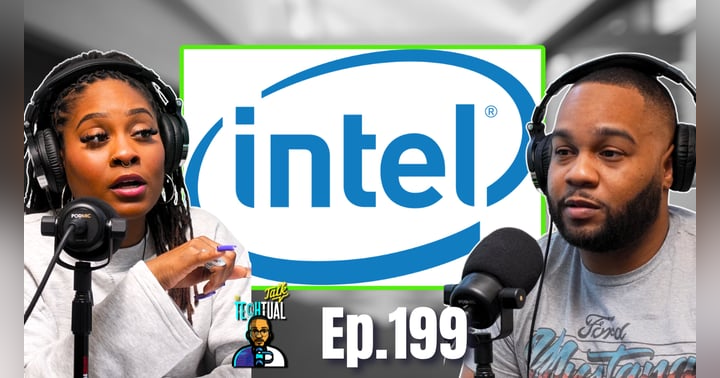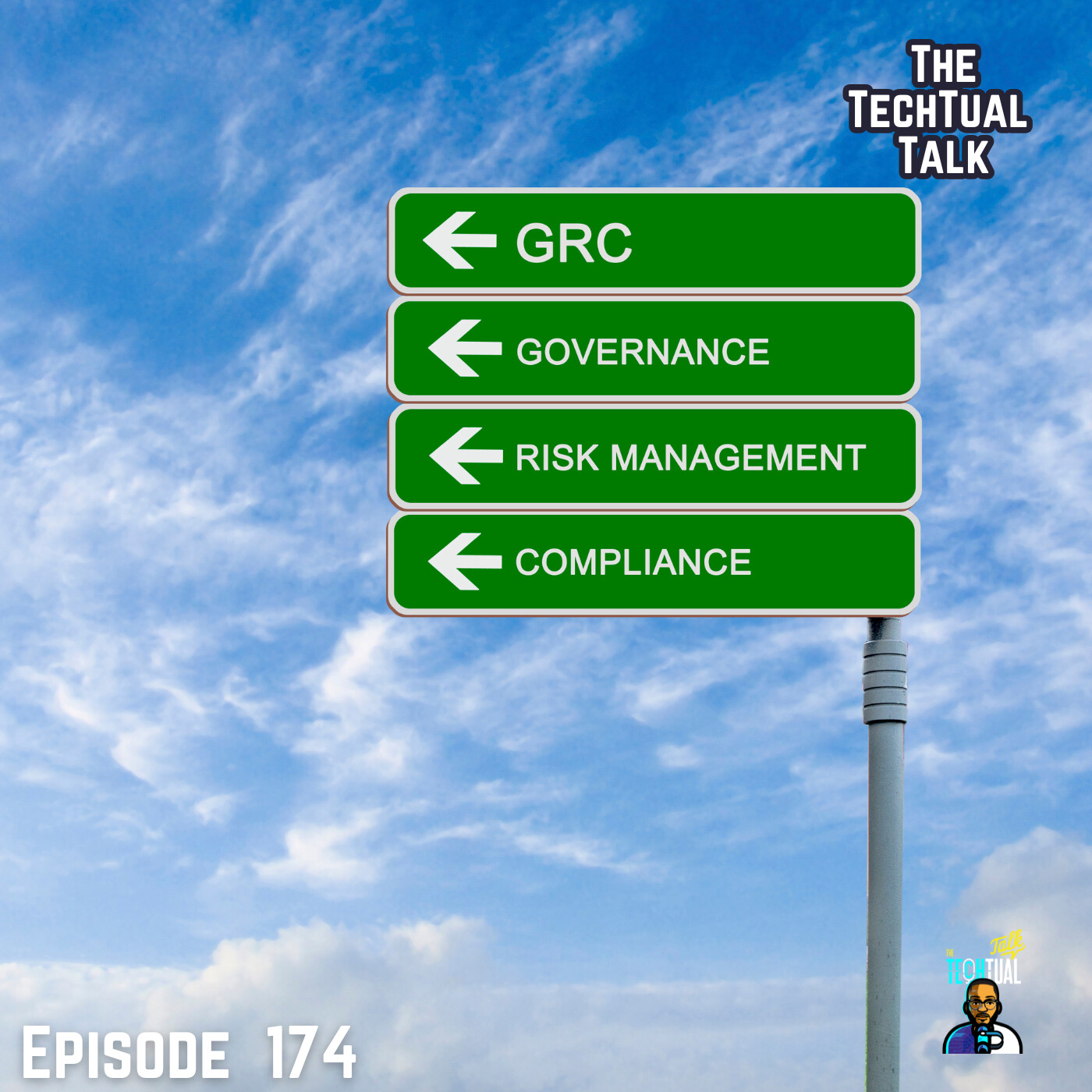GRC: More Than Just Paperwork

Welcome to a deeper dive into the world of Governance, Risk, and Compliance (GRC). In today's rapidly evolving technological landscape, the role of GRC professionals is undergoing a significant transformation. Forget the outdated stereotype of GRC as mere 'paper pushing.' This blog post will explore the evolving role of GRC professionals and highlight why technical skills are becoming not just valuable, but essential. We'll break down the outdated stereotype of GRC as mere "paper pushing" and highlight the exciting opportunities for tech-savvy individuals. This post builds upon the insights shared in our latest podcast episode, Ep. 174 GRC Is Technical: Breaking the Non-Technical Stereotype in GRC, where we spoke with GRC expert Abdie Mohamed. We encourage you to listen to the episode for a more in-depth discussion, and then come back here to further explore the concepts we touched upon.
Introduction: The Evolution of GRC
GRC, an acronym for Governance, Risk, and Compliance, has long been a cornerstone of organizational management. Traditionally, GRC focused heavily on policy creation, documentation, and ensuring adherence to regulations. However, the digital revolution has fundamentally altered the risk landscape and introduced complexities that necessitate a more technically adept approach to GRC. The shift towards cloud computing, the rise of cybersecurity threats, and the increasing adoption of Artificial Intelligence (AI) have all contributed to this evolution. GRC is no longer solely about adhering to regulations; it's about proactively managing risks in a dynamic technological environment.
As organizations increasingly rely on technology, the potential for technology-related risks has grown exponentially. Data breaches, system outages, compliance violations related to data privacy, and even ethical concerns surrounding AI usage are now major considerations for businesses. GRC professionals must understand these risks and develop strategies to mitigate them effectively. This requires a solid understanding of the technologies involved, as well as the regulatory frameworks that govern their use.
The Outdated 'Paper Pusher' Stereotype
The traditional image of a GRC professional often conjures up visions of someone buried under mountains of paperwork, meticulously documenting policies and procedures. While documentation remains an important aspect of GRC, it's no longer the primary focus. The 'paper pusher' stereotype fails to capture the dynamic and strategic nature of modern GRC roles. This outdated perception can be detrimental, as it may discourage talented individuals with technical backgrounds from pursuing careers in GRC. It also perpetuates the misconception that GRC is a purely administrative function, rather than a critical component of business strategy.
The truth is, today's GRC professionals are increasingly involved in areas such as cybersecurity, cloud governance, and AI risk management. They work closely with IT teams, legal departments, and business leaders to ensure that technology is used responsibly and securely. They are problem-solvers, strategists, and communicators who play a vital role in protecting their organizations from a wide range of risks. The 'paper pusher' stereotype simply doesn't reflect the reality of the modern GRC professional's role.
Abdie Mohamed's Journey: From Paper to Cloud
Abdie Mohamed's career trajectory exemplifies the evolution of GRC. Starting in more traditional GRC roles focused on documentation and compliance, Abdie recognized the growing importance of technical skills and proactively sought opportunities to expand his knowledge. His journey led him to specialize in cloud governance, where he now advises organizations on how to securely and compliantly migrate their operations to the cloud. Abdie's story is a testament to the fact that GRC professionals can and should embrace technology and adapt their skills to meet the changing demands of the industry.
Abdie's transition from a 'paper-based' GRC role to a cloud-focused position demonstrates the value of continuous learning and adaptability. He recognized the need to acquire technical expertise in areas such as cloud computing, cybersecurity, and data privacy, and he actively pursued training and certifications to enhance his skills. His success serves as an inspiration to other GRC professionals who are looking to evolve their careers and embrace the technical side of GRC.
Why Technical Skills are Now Essential in GRC
The increasing complexity of the technological landscape has made technical skills essential for GRC professionals. Without a solid understanding of the technologies used by their organizations, GRC professionals cannot effectively assess and manage risks. They need to be able to understand how systems work, how data flows, and how vulnerabilities can be exploited. They also need to be able to communicate effectively with IT teams and other technical stakeholders.
Here are some specific technical skills that are becoming increasingly important for GRC professionals:
- Cloud Computing: Understanding cloud platforms like AWS, Azure, and Google Cloud is crucial for managing cloud-related risks.
- Cybersecurity: Knowledge of security concepts, threats, and vulnerabilities is essential for protecting data and systems.
- Data Privacy: Familiarity with data privacy regulations like GDPR and CCPA is necessary for ensuring compliance.
- AI and Machine Learning: Understanding the ethical and security implications of AI is becoming increasingly important.
- Networking: A basic understanding of networking principles can help GRC professionals understand how data is transmitted and secured.
- Scripting and Automation: The ability to automate tasks and analyze data using scripting languages can significantly improve efficiency.
In addition to these technical skills, GRC professionals also need strong analytical, communication, and problem-solving skills. They need to be able to assess complex situations, identify potential risks, and develop effective mitigation strategies. They also need to be able to communicate their findings clearly and concisely to both technical and non-technical audiences.
Cloud Governance: A Core Technical Component of GRC
Cloud governance is a critical aspect of GRC in the modern enterprise. As organizations increasingly adopt cloud-based services, they face new and unique challenges related to security, compliance, and risk management. Cloud governance frameworks provide a structured approach to managing these challenges and ensuring that cloud resources are used responsibly and securely.
Key aspects of cloud governance include:
- Identity and Access Management (IAM): Controlling who has access to cloud resources and what they can do is essential for security.
- Data Security: Protecting data at rest and in transit is a top priority in the cloud.
- Compliance: Ensuring that cloud environments comply with relevant regulations and standards is crucial for avoiding penalties.
- Cost Optimization: Managing cloud spending and avoiding unnecessary costs is an important aspect of cloud governance.
- Disaster Recovery and Business Continuity: Planning for outages and ensuring business continuity in the cloud is essential for resilience.
GRC professionals play a vital role in establishing and implementing cloud governance frameworks. They work closely with IT teams to define policies, procedures, and controls that ensure the secure and compliant use of cloud resources. They also monitor cloud environments for compliance violations and security incidents, and they take corrective action as needed.
GRC and Workplace Culture: Building Bridges with Engineering Teams
Effective GRC requires strong collaboration between GRC professionals and engineering teams. Historically, there may have been tension between these two groups, with engineers sometimes viewing GRC as an obstacle to innovation. However, it's crucial to foster a culture of collaboration and mutual respect, where both groups understand and appreciate each other's perspectives. GRC professionals need to be seen as partners who can help engineering teams build secure and compliant products and services.
Here are some strategies for building bridges between GRC and engineering teams:
- Communicate Clearly: Explain the rationale behind GRC policies and requirements in a clear and concise manner.
- Provide Training: Offer training to engineering teams on security and compliance best practices.
- Involve Engineers in the GRC Process: Seek input from engineers when developing GRC policies and procedures.
- Automate Compliance: Use automation tools to streamline compliance tasks and reduce the burden on engineering teams.
- Celebrate Successes: Recognize and reward engineering teams for their contributions to security and compliance.
By fostering a collaborative and supportive relationship, GRC professionals and engineering teams can work together to build a more secure and resilient organization.
Navigating AI Risks: A New Challenge for GRC Professionals
The rapid adoption of Artificial Intelligence (AI) presents new and complex challenges for GRC professionals. AI systems can introduce biases, perpetuate inequalities, and pose risks to privacy and security. GRC professionals need to understand these risks and develop strategies to mitigate them effectively.
Key AI-related risks include:
- Bias and Discrimination: AI systems can perpetuate biases present in the data they are trained on, leading to discriminatory outcomes.
- Privacy Violations: AI systems can collect and process vast amounts of personal data, raising concerns about privacy.
- Security Vulnerabilities: AI systems can be vulnerable to adversarial attacks, where malicious actors manipulate the system to achieve their goals.
- Lack of Transparency and Explainability: It can be difficult to understand how AI systems make decisions, making it challenging to identify and correct errors.
- Ethical Concerns: AI systems can raise ethical concerns related to job displacement, autonomous weapons, and other issues.
GRC professionals need to develop frameworks for assessing and managing these risks. This includes establishing ethical guidelines for AI development and deployment, implementing security controls to protect AI systems from attacks, and ensuring that AI systems are transparent and explainable.
The Exciting Opportunities for Tech-Savvy GRC Professionals
The evolving nature of GRC presents exciting opportunities for tech-savvy individuals. As organizations grapple with the challenges of digital transformation, they need GRC professionals who can understand and manage the risks associated with new technologies. This creates a demand for individuals with expertise in areas such as cloud computing, cybersecurity, data privacy, and AI.
GRC professionals who possess strong technical skills can command higher salaries, advance their careers, and make a significant impact on their organizations. They can play a vital role in shaping the future of technology and ensuring that it is used responsibly and ethically.
If you are a tech-savvy individual looking for a challenging and rewarding career, GRC may be the perfect fit for you. By embracing technology and developing your skills, you can become a valuable asset to any organization.
Conclusion: Embracing the Technical Future of GRC
The world of GRC is changing, and the 'paper pusher' stereotype is no longer relevant. Today's GRC professionals need to be technically adept, strategic thinkers, and effective communicators. They need to understand the technologies used by their organizations, the risks associated with those technologies, and the regulatory frameworks that govern their use. By embracing technology and developing their skills, GRC professionals can play a vital role in helping their organizations navigate the complexities of the digital age. As we discussed in Ep. 174 GRC Is Technical: Breaking the Non-Technical Stereotype in GRC, the future of GRC is undoubtedly technical, and the opportunities for those who embrace this change are immense. We encourage you to listen to the episode and continue to explore this exciting field!










